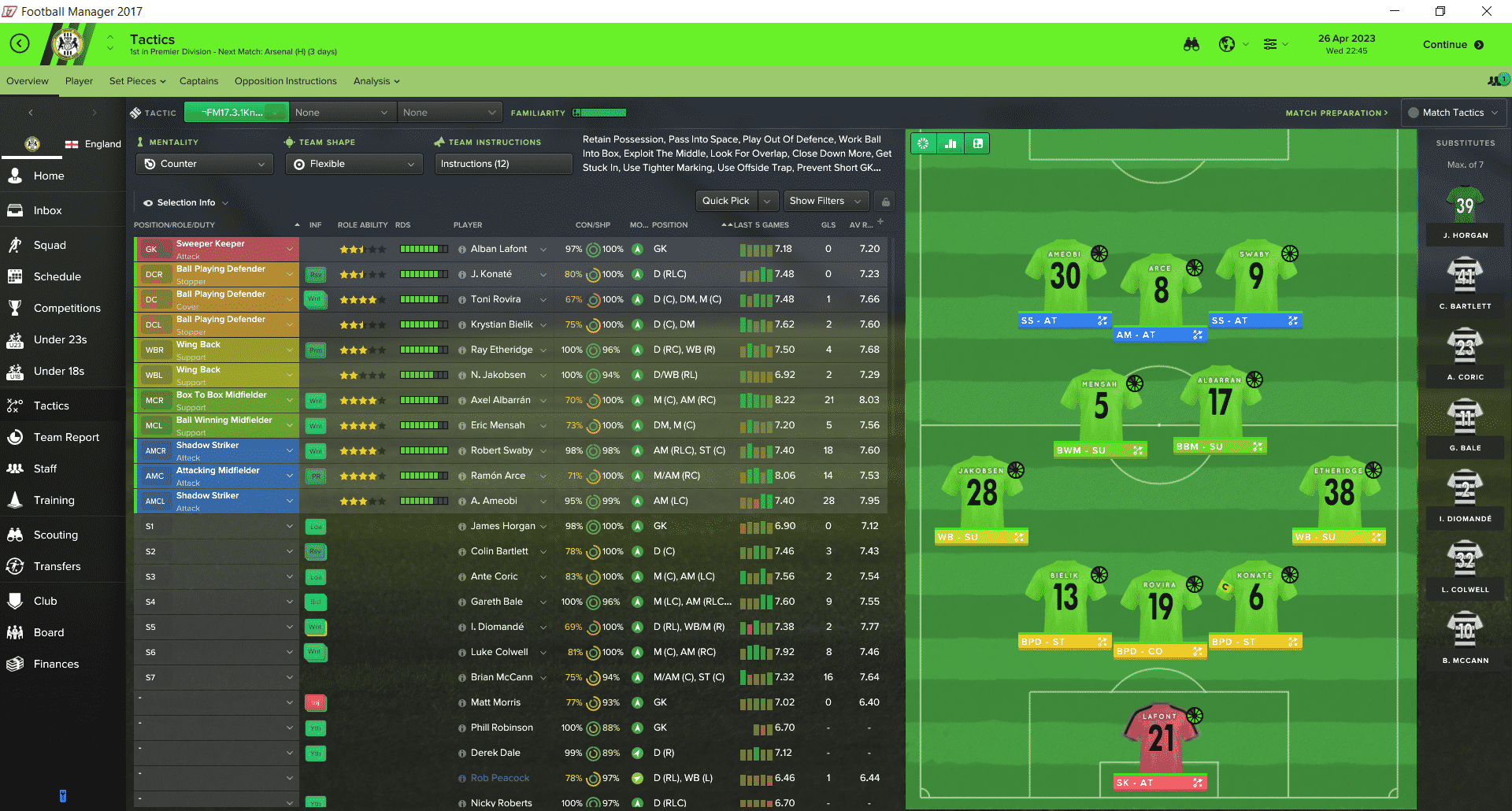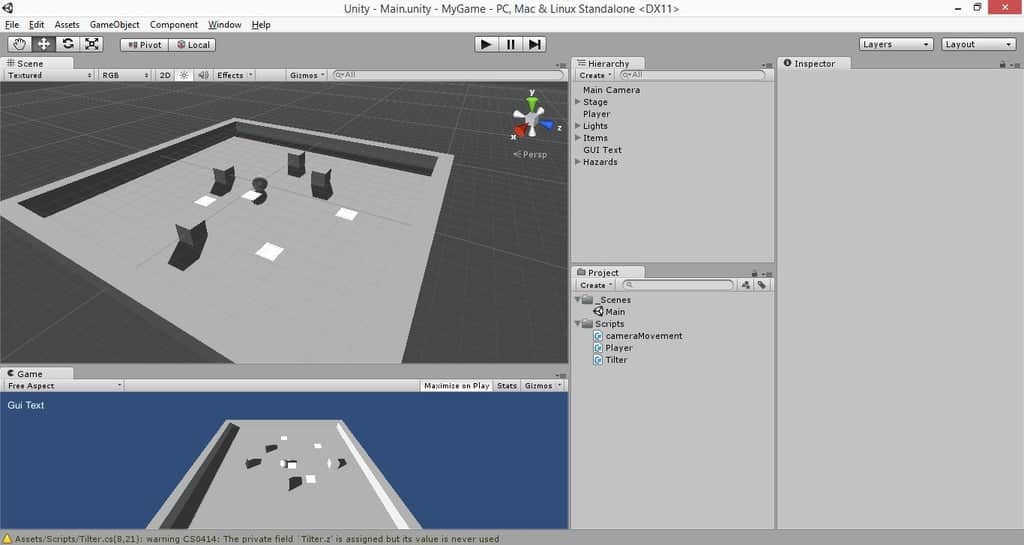by @guidosteve
For most FM players, negotiating contracts with players consists of offering a lower wage than requested and then gradually get closer to the player before agreeing on something.
I used to do that…
… but then I realized that my doing’s in FM was very similar to using the used car salesman technique…
via GIPHY
… and I thought: “There must be a better way”.
Luckily there is which I’ll cover today but first I’ll show the used car salesman tactic in all its glory.
Used car salesman approach to contract negotiations
For the example, I’m going to be using Marcus Rashford.
After a stellar season, it seems that the young wonderkid wants a new contract and here are his initial demands.
Sounds reasonable, but I’d prefer it to be cheaper…
So, I offer him a wage that’s 30% below what he wants. That’s a wage of £33.5K p/w
He wasn’t too happy with that and he goes a whopping £1K p/w down in the next demand.
I counter by slowly raising my offer and we reach an agreement at a rate of £38K p/w.
No too shabby, eh? We got off with a wage that was £9K p/w lower than what he initially wanted. We also “won” as he caved in more than we did.
But could you have done better?
DON’T MISS OUT ON THE NEXT GUIDE!
Follow @guidosteve on twitter
What are we actually negotiating for?
Let’s start by revisiting Marcus Rashford’s initial demands.
In the screenshot above I have highlighted two things:
· Wage Budget Cost
· Current Season Transfer Budget Cost
Let’s first understand where these two figures come from.
What is the Wage Budget Cost?
The wage budget cost is pretty simple on the surface. It’s simply how much the contract “costs” in your wage budget. The higher it is, the less room there will be for other players in the wage budget.
Simple enough.
So, this is just the players wage, right?
No.
As you can see, Marcus Rashford demands a wage £47.5K p/w but the Wage Budget Cost is £59K p/w. That is because, this figure also includes all other wages the player gets which is shown under “Bonuses & Clauses”.
So how does the game arrive at this number?
Based on my testing, it does the following:
Wage: Simply the players wage. In this instance, it’s £47.5K p/w
Now it gets a bit hairier as all things under Bonuses & Clauses are dependent on squad status.
So, for a key player, the appearance fee will weigh heavier on Wage Budget Cost than it would for a rotation player, who again is expected to appear more than a youngster.
To see this, the only thing I have changed now is Marcus Rashford is a Key Player.
And here he is as a youngster.
In other words, as a youngster his bonuses doesn’t have any effect on the wage budget cost. This is natural as he will not be expected to get any games.
In the same mould, goal bonuses will also “cost more” in the wage budget for attackers compared to defenders.
So, that is basically what Wage Budget Cost is which is one of the things we want to minimize.
We’ll get to that after we’ve covered…
Current Season Transfer Budget Cost
The other thing here is the current season transfer budget cost.
This is very simple as it is simply made up like this:
Current Season Transfer Budget Cost: Agent Fee + Loyalty Bonus / Contract Length
In my example, the agent fee is £850K the loyalty bonus is £1.4M and contract length is 5 years so we have: £850K + (£1.4M / 5) = £1.13m which rounded off is £1.1M.
Future Budget Cost is simple the remainder of the Loyalty Bonus so £1.4M / 5 * 4 = £1.1M and it’s a coincidence that the two are similar in this example.
And with that let’s get to those real contract negotiations.
DON’T MISS OUT ON THE NEXT GUIDE!
Follow @guidosteve on twitter
The Levy-Contract approach
We now know that we want to minimize Wage Budget and Current Season Transfer Budget Cost. Normally, I do not care too much to Future Budget Cost.
In order to get Rashford to accept a contract offer that’s much better for us, we throw in a lot of variable stuff, that we don’t expect will cost us very much.
In my first offer, I’ve thrown in a bonus for being the Top Goalscorer in the league as well as a Relegation Release Clause. I do not expect these to matter. Below is my first counter offer.
Now, you’ll get a counter-offer with information about, how to reach an agreement.
Seems like I’ve chosen a bad example. What Rashford cares most about is his wages!
But that also tells us, that we could exchange wages for incentives, that is offer a somewhat better wage and limit has bonuses.
So, I’ll re-counter with a better wage, and less incentives.
After a bit of used car salesman technique, and throwing added incentives on, we ended at a final contract of this:
We ended with a lower wage, a lower Loyalty Bonus and lower game-to-game incentives (that he is likely to get) than before.
On the other hand, he gets a bonus for Winning the EFL Cup and being Premier League Top Goalscorer, as well as a Relegation Release Clause. Again, I don’t expect any of these will ever come to fruition.
Overall, we also ended with a Wage Budget Cost of £43K p/w compared to $49K p/w (when we only employed the user car salesman technique) and a slightly lower future budget cost.
It might not sound like much but the contract is actually 12% better for us than it was before.
Multiply that up to a team of 20 players and it makes room for two extra players without changing the wage budget.
START AT GREEN, END AT YELLOW
One thing you want to make sure to do is the following.
The first offer you make has the goal of being significantly under what the player wants but still get a response that is “green”.
A green response means that you are not too far from each other, and it will allow you to have several iterations with the player.
When the player response go to yellow you only have one more counter-offer left in your bag.
I recommend negotiating back and forth until you get to a yellow level. At this time, you can either take the offer, which I do if I really don’t want to lose the player, or negotiate with a counter-offer, that’s 2-3% lower than what they want. They’ll usually accepts this.
Things to avoid in Football Manager contracts (red flags)
When negotiating contracts in FM, there are some things you should be very careful before implementing them into contracts.
Match highest earner clause
If you are to agree to a Match Highest Earner Clause you should be extremely careful.
These are most often demanded at lower level clubs and basically says, that if you sign a contract that is better with another player, the player in question will automatically have his contract improved.
Naturally, this can potentially get extremely expensive down the road, especially if you have more than one player at the club with this clause.
Yearly wage rise
Yearly wage rises are quite normal with younger players, but you should be aware that it adds up over time.
As an example, say you have a player on a £100K p/w with a 4-year contract and a 25% wage raise he will get the following wage:
· Year 1: £100K p/w
· Year 2: £125K p/w
· Year 3: £156K p/w
· Year 4: $195K p/w
In other words, his wage almost doubles in the four years so make sure you are aware of this when signing a contract with a yearly wage rise.
Minimum Fee Release Clause
This clause states that if another club matches the minimum fee release clause, you cannot refuse the transfer offer.
In some countries (such as Spain) you need to have a Minimum Fee Release Clause so make sure to negotiate one at a level, where you think: “Ok, if someone comes in with this offer I’m fine with letting the player go”.
To sum up here’s how to negotiate contracts in FM
1. Offer a contract that’s 15-35% lower than what the player wants. The more extra money he wants compared to his current contract, the more discount you apply.
2. Add extra incentives in your first counter-offer
3. Based on the feedback of the Agent, figure out whether wage, bonusses or other things are most important to the player
4. Prioritize the important stuff and keep low-balling the non-important stuff while adding incentives that the player likely will never get
5. Agree and sign the contract
Hope you’ve enjoyed this guide to contracts in Football Manager…
… and if you have any comments or questions, please post them down below and I’ll be around to answer them.
– Steve




No Comments